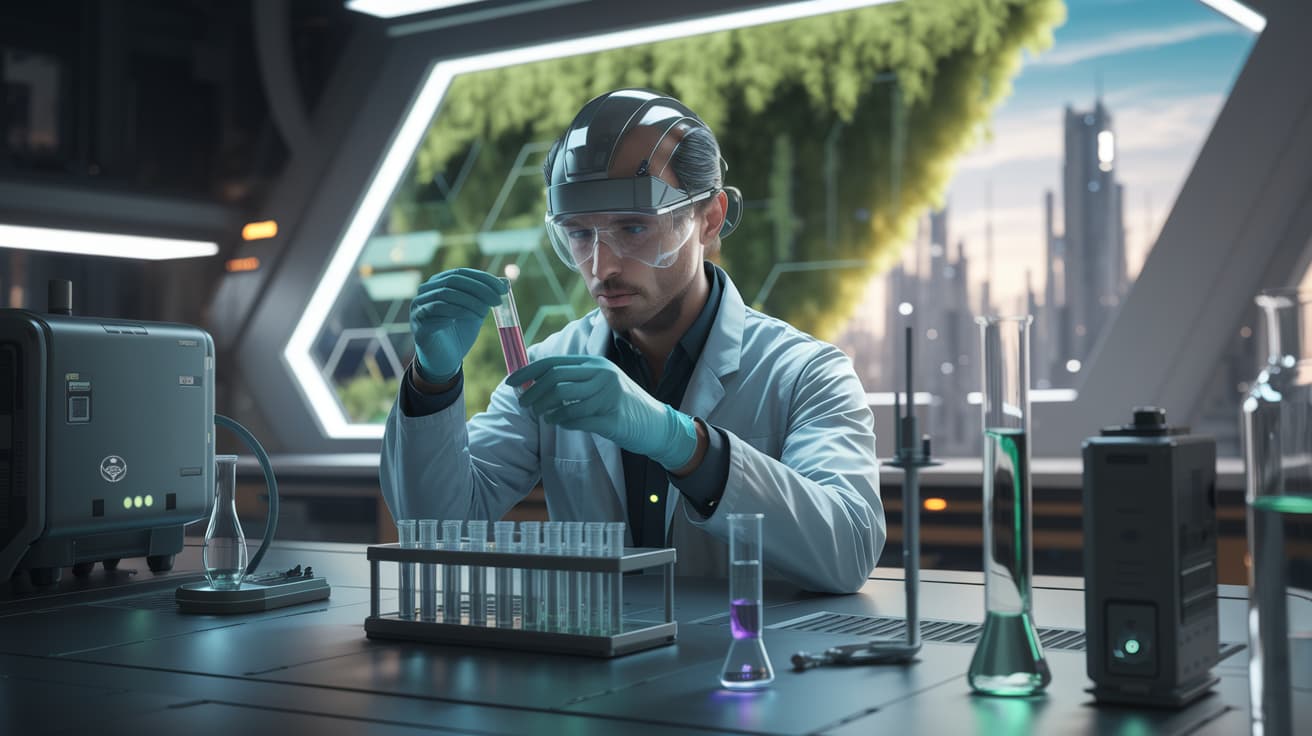
The Future of Biohacking: Trends Shaping 2025 and Beyond
Let’s face it, biohacking isn’t just for Silicon Valley tech geniuses in their garages anymore. It’s become mainstream, weaving itself into our everyday lives with promises of better health, sharper minds, and maybe even longer lives. And as we step boldly into 2025, biohacking is evolving faster than you can say “nootropics.” Whether you’re neurodivergent or neurotypical, there’s something in the future of biohacking for everyone.
So, grab your favourite adaptogen latte, and let’s explore the trends shaping the future of personal optimisation. No lab coat required, unless you’re into that sort of thing.
1. Artificial Intelligence: The Biohacker’s Best Mate
Artificial Intelligence (AI) has revolutionised everything from our shopping habits to how we binge-watch TV shows, so it’s no surprise it’s now muscling into biohacking. Picture this: an app that doesn’t just tell you to drink water but calculates how much, when, and even what temperature, based on your hydration levels.
AI isn’t just helpful, it’s shaping the future of biohacking by offering personalised strategies for everything from sleep tracking to gut health optimisation. Imagine wearable devices syncing with AI platforms to provide real-time insights about your heart rate, sleep quality, and even your gut microbiome. For neurodivergent individuals, AI can offer personalised strategies for better focus, emotional regulation, and energy management.
- Cost Factor: Many AI-driven wellness apps are free or reasonably priced. More advanced platforms might charge a subscription, but the personalisation they offer can make it worth every penny.
- Pro Tip: Try apps like Eight Sleep for personalised sleep tracking or use Chronomics to map your DNA for wellness insights.
Fun thought: What’s next? AI reminding you not to skip leg day because your muscles sent a distress signal? It’s not far off.
2. Bioregulators and Peptides: The Fountain of Youth in a Vial
If you thought collagen supplements were cutting-edge, let me introduce you to bioregulators and peptides. These molecules are hailed as the future of regenerative health, with promises to slow aging, improve cellular repair, and even enhance organ function.
For neurodivergent individuals, certain peptides may have the potential to aid neurotransmitter regulation, reducing anxiety or boosting focus. While this science is still emerging, the possibilities are as exciting as they are futuristic.
- Cost Factor: Bioregulators are on the pricier side, but as research advances, they’re expected to become more accessible.
- Pro Tip: Look into clinical-grade supplements with professional guidance, don’t trust that random online store with five-star reviews from “Anonymous.”
3. Home Wellness Tech: Bringing the Lab to Your Living Room
Forget expensive spa days, biohacking tech is making wellness as easy as flipping a switch at home. Infrared saunas, cold plunge tubs, and neurostimulation headsets are no longer reserved for millionaires or TikTok influencers.
- ND Connection: For those with ADHD or sensory processing issues, tools like neurofeedback headsets can help improve focus and calm overstimulated minds.
- Cost Factor: Devices like Muse meditation headbands or portable ice baths are becoming more affordable, but they still require a small investment.
- Pro Tip: Research second-hand markets or local wellness groups to snag deals. Also, ask yourself, “Do I really need this, or am I just trying to out-biohack Dave from work?”
4. Personalised Nutrition: Food That Speaks Your DNA’s Language
One of the most exciting aspects of the future of biohacking is personalised nutrition. Imagine a diet tailored perfectly to your DNA, improving everything from focus to digestion. You’ve heard the saying, “You are what you eat,” but in 2025, it’s more like “You are what your DNA says you should eat.” Advances in genetic testing mean you can now get dietary recommendations tailored specifically to your genetic makeup.
- For ADHD: Foods rich in Omega-3 fatty acids and magnesium are often highlighted for improving focus and reducing hyperactivity.
- For Autism: Diets low in inflammatory foods can help regulate mood and sensory sensitivities.
- Cost Factor: At-home genetic kits range from £50 to £200. While they aren’t dirt cheap, they’re becoming more accessible.
- Pro Tip: Look into brands like Vitagene or DNAfit for beginner-friendly testing kits that don’t feel like a GCSE science project.
5. Gut Health as the New Frontier
The focus on the gut-brain connection highlights how important this area is in the future of biohacking, especially for neurodivergent individuals. By now, you’ve probably heard that the gut is the “second brain,” and in 2025, this concept is taking centre stage. Emerging research suggests that a healthy gut microbiome can improve focus, reduce anxiety, and even enhance neuroplasticity.
- For Everyone: Prebiotics, probiotics, and fermented foods like kimchi or kombucha are easy ways to boost gut health.
- For ND: Studies suggest gut-brain therapies might be especially helpful for ADHD, autism, and even dyslexia by regulating neurotransmitter production.
- Cost Factor: Fermented foods are budget-friendly, while high-quality probiotic supplements range from £15 to £50 (in the UK).
- Pro Tip: Start small, add one fermented food to your diet at a time to gauge how your gut reacts. And yes, coffee counts as “fermented,” but no, it doesn’t count for this.
6. Holistic Longevity Hacks: Living Better, Not Just Longer
Longevity isn’t about extending life, it’s about improving the quality of those extra years. In 2025, biohackers are turning to methods like intermittent fasting, red light therapy, and cold immersion to support cellular health.
- ADHD and Autism: Practices like red light therapy are being explored for their potential to calm overstimulated brains.
- Cost Factor: A basic red light panel can cost around £100, but the benefits make it a worthwhile long-term investment.
- Pro Tip: Cold showers are free and deliver many of the same benefits as fancy cryotherapy chambers. Just be prepared to yell a bit in the process.
7. Digital Detoxes for Mental Clarity in the Future of Biohacking
Ironically, as technology drives biohacking forward, a counter-movement for digital detoxes is gaining momentum. Too much screen time has been linked to reduced focus, anxiety, and disrupted sleep patterns, especially for neurodivergent individuals.
- ND Tip: Set app timers or use grayscale mode on your phone to curb overstimulation.
- Pro Tip: Try the “1-2-3 rule”: One hour of screen-free time before bed, two hours of outdoor activity daily, and three moments of gratitude to refocus your mind.
Conclusion
The future of biohacking is as thrilling as it is varied, offering innovative ways to enhance mental clarity, physical health, and overall well-being. Whether you’re diving into AI-driven apps, experimenting with personalised nutrition, or simply shouting through a cold shower, 2025 is shaping up to be the year where biohacking truly becomes accessible to all.
Remember, biohacking is a journey, not a competition. Pick the trends that resonate with you, embrace the trial-and-error process, and, most importantly, have fun with it. After all, isn’t thriving what it’s all about?
Communities
Join the Herbal Biohacker community and connect with like-minded individuals who are transforming their lives with personalised biohacking strategies. Share your journey, learn from others, and gain access to exclusive tips, tricks, and expert advice. Together, let’s harness the power of science, nature, and a dash of humour to thrive. Join us at Herbal Biohacker today!

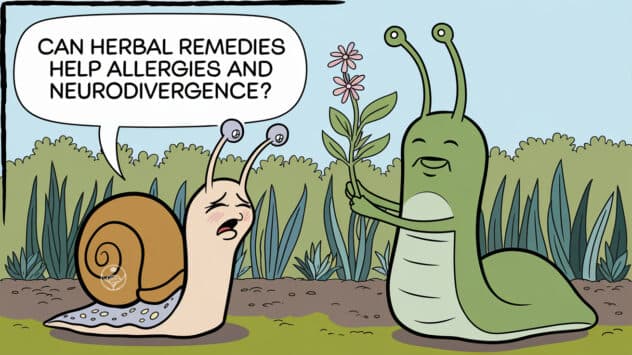
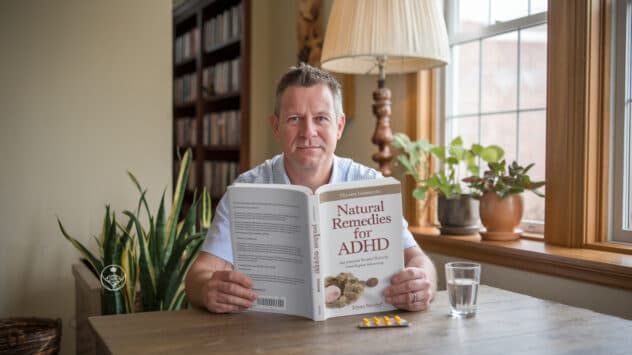
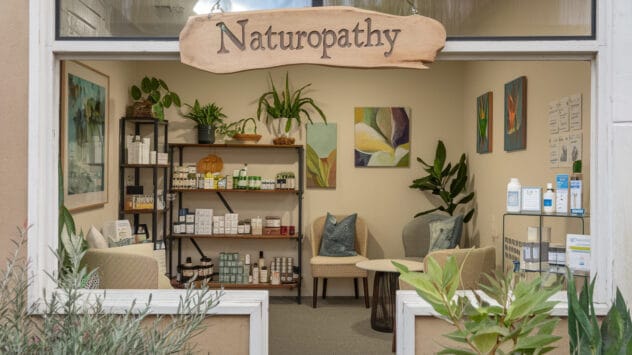
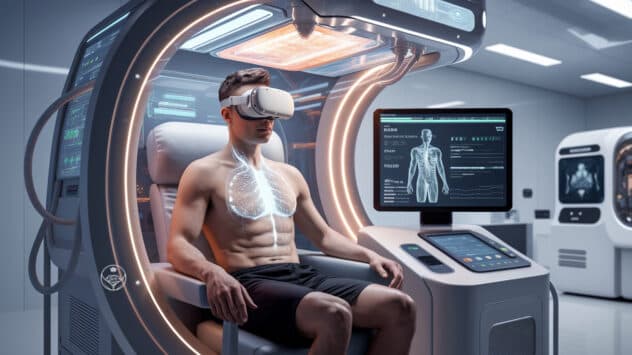
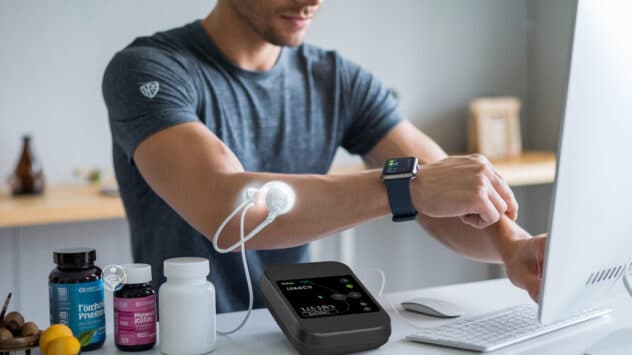
This was such an interesting read as I’ve been hearing about red light therapy and AI in health, but I had no idea they were being used like this. Has anyone tried wearable tech for focus or sleep? Would love to know if it’s worth it?
Hey Andromeda – I utilise my smart watch for sleep monitoring – its really good but I am obsessed with making sure I get enough decent sleep
Great thanks Claire, I’ll try that!
I’ve always struggled with sleep and focus (ADHD here), so this gave me loads to think about. Definitely going to look into gut health more any recommendations for where to start?
Check our blog on gut health! https://herbalbiohacker.com/gut-health-and-adhd-exploring-the-gut-brain-connection